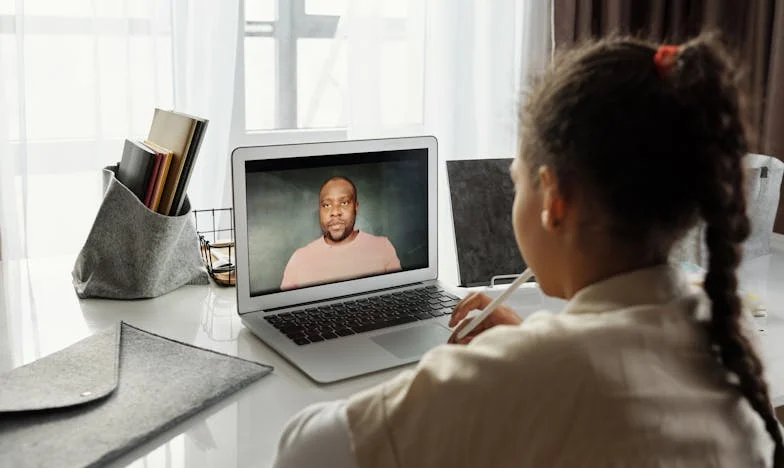Engaged to a Stranger: The Girl with the Scar
“You can’t be serious, Dad! I barely know her!” The words shot out of my mouth before I could stop them, echoing too loud in the otherwise quiet kitchen. My father—stern as always, arms folded—didn’t flinch. He just stared at me the way he always had: with a mix of expectation and disappointment.
“Marian, this is how things are done. You’re thirty-two, you’re not getting any younger, and Emily is a good girl. She comes from a decent family.” His voice was flat, final.
I pressed my palms against the cool granite of the countertop. My heart thudded so loud I was sure Mom could hear it from the living room. Outside, the city was waking up—cars honking, dogs barking, a siren somewhere in the distance—but inside my parents’ house, time felt frozen.
I’d first seen Emily just three days before. I was on my way home from work, tired, mind cluttered with mortgage rates and client calls, when I nearly ran her over. She was walking along the highway shoulder, rain turning her hair into slick ropes. I pulled over, rolled down my window, and asked if she needed a ride. She hesitated. I noticed the jagged scar running down her left cheek, disappearing beneath the collar of her thrift-store coat. She finally nodded and climbed in, shivering.
We didn’t talk much during that drive, but something about her—her silence, the way she clutched her backpack, the haunted look in her eyes—stuck with me. I dropped her off near her apartment, and that was that. Or so I thought.
Turns out, my mother had known her parents for years from church. One phone call later, and suddenly Emily was at Sunday dinner, sitting awkwardly at our table, picking at her peas while my parents beamed like they’d won the lottery.
Now here we were. My family, convinced this was fate—a successful bank manager and a girl who’d seen hard times. My father, so proud of his matchmaking. My mother, already planning the engagement party.
I barely ate. Emily barely spoke.
The next day, I found her sitting on the steps outside my building, arms wrapped around herself. I sat beside her, not sure what to say. She stared at the cracked concrete.
“Why are you doing this?” I asked quietly.
She laughed, a small, bitter sound. “I don’t really have a choice. My parents think this is my best shot.” She ran a finger along her scar. “You probably heard what happened. I got it in a car accident two years ago. My boyfriend was drunk. He walked away without a scratch.”
I wanted to say something comforting, but the words tangled in my throat. Instead, I just listened.
“People look at me like I’m broken,” she continued. “Like I should be grateful for any attention. I don’t want your pity, Marian.”
“I’m not offering pity,” I said, perhaps too sharply. “I just… I don’t know what I’m supposed to feel.”
She smiled, but it didn’t reach her eyes. “Neither do I.”
That night, my parents called. Dad was already talking about wedding venues. Mom asked what color flowers Emily liked. I hung up and stared at the ceiling in my dark apartment, wondering how my life had spun so wildly out of control.
A week passed. Emily and I went on what my mother called “dates”—awkward meals in noisy diners, walks in the park where we were more like acquaintances than anything else. She told me about her little brother, her part-time job at the animal shelter, her dreams of becoming a nurse before the accident derailed everything. I told her about the bank, about fishing on weekends, about how I never felt like I belonged anywhere, even in my own family.
One evening, after another stiff dinner, I finally asked her, “Do you want this? Us?”
She looked away. “I want a life where I’m not judged by my past, or my face. I want to feel safe. Isn’t that what you want, too?”
I didn’t answer. Instead, I reached out and gently touched the side of her face. She flinched, but didn’t pull away. The scar was rough beneath my fingertips, a reminder of everything she’d survived.
The engagement party was set for the following Saturday. My parents invited everyone—family, friends, half the congregation. Emily’s parents beamed, but she looked pale, her hands shaking as she greeted guests.
After dinner, I found her alone in the kitchen, staring at her reflection in the window. “Are you okay?”
She turned, eyes shining with unshed tears. “I don’t know how to do this, Marian. Pretend to be happy. Pretend like this is what I want.”
I felt something break inside me. “Then let’s not pretend. Let’s tell them the truth. We can figure this out together, or separately. But I don’t want to live a lie.”
She nodded. “I’m scared.”
“So am I.”
That night, we stood in front of our families and told them the truth: that we weren’t in love, that we were tired of being pushed into lives that didn’t fit. There were tears. My father stormed out. My mother cried. Emily’s parents looked devastated.
But as the dust settled, I felt something I hadn’t felt in a long time—relief. And, maybe, hope. Emily smiled at me for the first time, a real smile, and I realized that sometimes, taking control of your own story is the bravest thing you can do.
Looking back now, I wonder: how many of us are living lives shaped by someone else’s expectations? How many are brave enough to say no and choose our own path? Would you have made the same choice?
